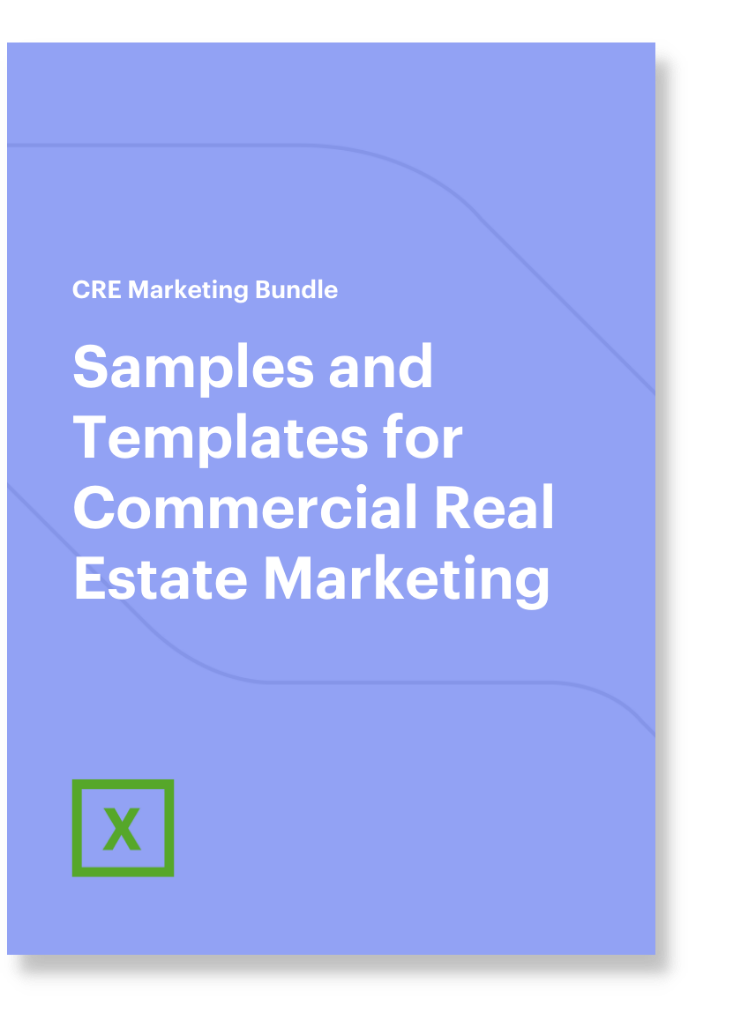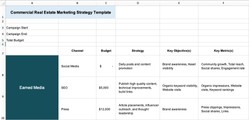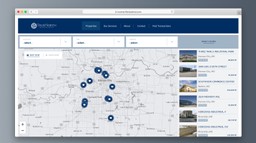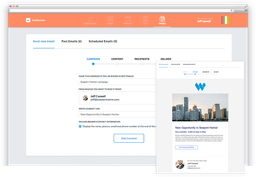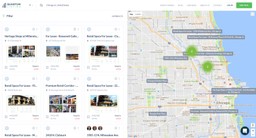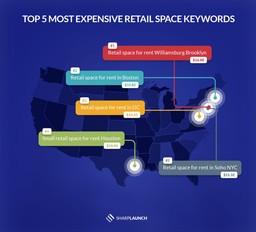
Marketing Best Practices
Commercial Real Estate Marketing Strategy: The Definitive Guide (2024)
Table Of Contents
- 1. Set Goals and Identify Your Ideal Audience
- 2. Develop a Commercial Real Estate Marketing Plan
- 3. Consider the Tools and Software You Need
- 4. Upgrade Your Company Website
- 5. Create Feature-Rich Property Websites
- 6. Segment and Build Targeted Email Campaigns
- 7. Add your Listings on Commercial Real Estate Portals
- 8. Create a Google My Business Page
- 9. Optimize Your Website for SEO
- 10. Nurture Your Contacts with Useful Content
- 11. Share Your Content on Social Media
- 12. Create a Paid Social Media Advertising Strategy
- 13. Regularly publish press releases
- 14. Set Up a Google Keyword Campaign
- 15. Set Up Paid Commercial Real Estate Ads Through Display Campaigns
- 16. Target Your Visitors through Remarketing
- 17. Attend Industry Events and Conferences
- 18. Advertise on Trade Journals
- 19. Leverage Video for Your Properties
- 20. Measure Your Success
- Marketing Strategy Template (Bonus)
Ready to elevate your commercial real estate marketing game and propel your business to new heights?
In today’s competitive market, a well-crafted marketing strategy is crucial for standing out from the crowd and capturing the attention of potential tenants and investors that are are increasingly demanding speed and frictionless user experiences when searching for new properties and investment opportunities.
Today more than 80% of buyers and tenants begin their property search online. That means that in order to effectively market your property listings and stand out from the competition, it’s vital to establish a commercial real estate marketing plan that extends beyond mere flyers, brochures, and LoopNet listings.
Below are 20 key strategies that’ll show you how to market commercial real estate to expand your digital footprint and grow your business.
1. Set Goals and Identify Your Ideal Audience
Creating a successful commercial real estate marketing strategy requires a clear understanding of your objectives and audience. Without these, it’s difficult to create a plan that resonates with potential clients and drives business growth.
Before diving into next steps, consider answering the following questions:
- What are the key decision making criteria of your best target clients?
- Where does your audience spend its time online?
- What methods will you use to reach them?
- What creative assets do you need to create?
- What tools and resources do you need?
- What is your budget?
- How will you measure success?
Your competitors can provide some ideas, so do a short study on how they’re marketing themselves and their properties, then think about how you can differentiate and stand out in comparison.
Spending the time to clearly define your unique differentiators will help set the foundation for your future marketing communications and materials.
2. Develop a Commercial Real Estate Marketing Plan
What is a real estate marketing plan? And how do you write one?
A marketing plan provides a comprehensive overview of your overall mission, unique selling point, target audience, strategy and metrics you’ll measure success on.
When creating your plan, make sure you include your:
- business summary
- target market and audience
- budget
- marketing channels
- marketing material
- metrics
A healthy commercial real estate marketing strategy should have a well-balanced marketing mix and leverage Earned, Paid and Owned media.
Earned Media – Includes marketing activities that you typically “earn” by advocates of your brand and include free channels such as SEO, Social Media.
Paid Media – Refers to any performance-based channels or paid advertising like cost-per-click, banners, remarketing and paid advertising.
Owned Media – Typically includes your own media assets such as your websites, blogs, social media profiles and email marketing lists.
This marketing mix should be distributed across different channels to help mitigate any downside risk in the case things don’t work in a specific marketing area.
With this plan in mind, start mapping out the elements that will be needed to implement your strategy.
Property marketing will depend on the asset type and the target audience, so plan what kind of content will be needed to showcase them. Marketing industrial property might be different from marketing a multifamily property and the budgets to produce the content for its presentation could vary.
3. Consider the Tools and Software You Need
To execute an effective marketing strategy, you need to make sure you have the right commercial real estate marketing tools in place. The list of tools you use – often referred to as a “marketing stack” – covers a variety of different uses and requirements. Everything from contact management, to email marketing, to listing presentations, and more.
It’s important to give the technology selection process the attention it deserves so you don’t have to keep changing platforms. The switching cost from one commercial real estate marketing software to another can decrease productivity, and hinder your ability to operate at 100% as you manage the transition.
Companies that streamline, and optimize, the various marketing-related processes in their operations are more likely to experience sustained growth and overall success.
4. Upgrade Your Company Website
Your company website is often times the first impression you give a potential client and a key factor to instill trust and confidence to prospects.
It can also serve as an important marketing outlet allowing you to feature company news, demonstrate thought leadership through blog posts and research studies, and promote your properties with the help of a commercial property search engine.
An experienced commercial real estate marketing agency can help turn your ideas intro reality and before you start a relationship with one, here’s a list of questions that will help you gauge their experience and level of professionalism.
5. Create Feature-Rich Property Websites
In 2020, if you don’t have a strong digital footprint for your properties then your competitors are going to eat your lunch.
Interactive property websites are a great way to showcase your commercial properties. Not only do they serve as a digital hub for your commercial property marketing efforts but can also add “wow” factor to help engage and convert visitors much more effectively.
High-performing property sites include feature-rich content such as:
- Professional photography
- Property video
- 3D virtual tours
- Availabilities information
- Floor plan PDFs
- Interactive maps
Here’s a list of 40 best commercial real estate websites for your inspiration.
6. Segment and Build Targeted Email Campaigns
An effective commercial real estate email marketing strategy is one of the most cost effective strategies to reach prospects, engage them in conversations, and convert them into deals.
Building and segmenting a database of potential prospects for sending targeted email communications is one of the single most important marketing activities you can do to help fuel your sales or leasing efforts.
There are plenty of ways to start building yours through your website, blogs and lead capture pages. Whether you use a commercial real estate CRM, a real estate email marketing software or simply store your contacts manually, make sure you have a game plan in place to grow and nurture your user base.
7. Add your Listings on Commercial Real Estate Portals
Commercial real estate listing services and portals are an effective way to advertise commercial property for lease or sale since they allow you to generate exposure and target a highly relevant audience.
Besides Costar and LoopNet there are many other commercial real estate listings sites worth considering to promote your properties and drive leads.
8. Create a Google My Business Page
Google My Business is a free service which helps local businesses promote themselves online. Searchers can instantly find results relevant to their location and what they’re looking for.
Creating a Google my Business listing for your property gives it additional visibility, ensuring your property appears on the first half of Google search as well as on Google Maps. Searchers can then see where your property is, and investigate the neighbourhood, before visiting you for more details.
A business profile also provides an opportunity to post photos, your latest offers, and respond to reviews. And you can use it to keep your business information up to date, so that searchers always know how to contact you.
9. Optimize Your Website for SEO
Make sure you develop a real estate SEO plan as early as possible. Visibility from search engines can have a powerful impact for your business and help drive tenants, brokers and investors to your website.
However, SEO is a long-term process and requires can take months to start seeing impact.
10. Nurture Your Contacts with Useful Content
Nurturing your contacts with content is one of the key tactics to stay top of mind and nurture your prospects until they are ready to actively engage with your business.
However, not many commercial real estate companies know where to start or what to do.
The key to content marketing is this: don’t just be part of the noise.
Create high-quality content that is useful, relevant or entertaining. This can be done in many different ways including blog posts, market studies, infographics and videos.
11. Share Your Content on Social Media
Using social media marketing for commercial real estate is free and an effective way to build brand awareness and drive eyeballs to your website. Savvy commercial real estate professionals are also using social media to spark conversations and facilitate connections with potential customers and partners.
Using LinkedIn for real estate, or even Twitter and Facebook to get more attention for your listings can be a very effective tactic when used properly. The three mentioned social media networks are most relevant for commercial real estate, and where your company should be most active.
12. Create a Paid Social Media Advertising Strategy
Another way to raise awareness and acquire visits is through performance-based commercial real estate advertising campaigns on LinkedIn, Twitter and Facebook.
These platforms can offer very laser-targeted campaigns, allowing you to select who, when and where your Ads are displayed.
For example, if you are leasing a life science property you could launch a campaign targeting C-level executives in the bioscience industry in a specific geography.
13. Regularly publish press releases
Press releases can be an effective way to connect with people who can add your business’s details to a periodical.
Before sending out a press release, make sure you do some research to find out who’s responsible for the commercial real estate section of the publications you want to target. Sending information to the right people is key to getting the response you want.
Many of them want you to send them content, so they’ll include their email address either on their social media bio, or underneath other commercial real estate articles they’ve published.
Over time, you’ll be able to create your own “black book” of influencers. This can be a key asset which will save you thousands of dollars in PR agency fees, who often spend most of their efforts on outreach.
Your first press release may not get much of a reaction, but keep sending them – you never know which one will get picked up.
Building relationships with influencers, journalists and bloggers can pay off big. Outreach takes time but press mentions can help propel your brand awareness and have a massively positive impact on your marketing efforts.
Having your own “black book” of influencers is a key asset and will save you thousands of dollars in PR agency fees who essentially spend most of their efforts around outreach.
14. Set Up a Google Keyword Campaign
There are 500 million searches on Google every day and chances are that your clients are searching for keywords related to your commercial property or business right now.
Google Adwords is a very powerful acquisition channel to help you set up commercial real estate ads but real estate keywords can be very expensive depending on your target market. However, what’s great about Adwords is that you can specify your Ad budget to whatever you feel comfortable with and stop at anytime.
15. Set Up Paid Commercial Real Estate Ads Through Display Campaigns
Display advertising comes in different formats and can help raise brand awareness and impact thousands (or millions) of people very quickly.
Working with Ad networks like Adwords can help you with advertising your commercial real estate and will provide you with very granular targeting and allow you to decide what websites you want your Ads to appear on.
16. Target Your Visitors through Remarketing
Remarketing goes beyond simple display advertising. When a user visits your website, a cookie is dropped on their computer so you can target them and show relevant Ads when they browse on different websites.
This can be an effective way to stay “top of mind” and drive visitors that engaged previously back to your property listing or company website.
17. Attend Industry Events and Conferences
It goes without saying, commercial real estate events are a great opportunity to network, build relationships, generate leads and expand knowledge about the industry and market trends.

The possibility to build many relationships and in-person interactions in such a short period of time is difficult to achieve through other types of marketing channels. However, it’s critical to have a well-defined event marketing strategy because attendance and participation usually comes with a hefty cost.
18. Advertise on Trade Journals
Commercial real estate trade journals and online publications are read daily by thousands of potential investors, brokers and other industry peers.
Almost all industry journals offer advertising opportunities to help with advertising commercial real estate in front of a large, national audience or a more focused regional segment.
Overall, advertising on trade journals in commercial real estate can help increase visibility, credibility, and lead generation for commercial real estate firms, making it a valuable part of a marketing strategy.
19. Leverage Video for Your Properties
Video is a powerful marketing strategy for commercial real estate because it allows potential buyers or tenants to visualize and experience the property before visiting it in person.
Video tours can showcase the property’s unique features and provide a sense of its size and layout, helping to generate interest and accelerate the decision-making process. In addition, videos and 3D virtual tours can be easily shared on social media and other online platforms, expanding the property’s reach and increasing its visibility to potential clients.
20. Measure Your Success
Always, always remember this basic adage:
The most critical component of a success commercial real estate marketing strategy is measuring the success of your activities. Define key metrics for each of your marketing channels, setup a real estate marketing report, and make data-driven decisions to continuously improve your efforts.
Don’t let your strategy get stale. You should constantly be testing ideas and tactics to see what works and, more importantly, what doesn’t have any impact.
Most importantly, don’t lose sight of how your marketing strategies impact your business objectives. If you can’t quantify the direct or indirect impact on your lease-up, sales or tenant retention efforts (or whatever else) then you need to go back to the drawing board.
Marketing Strategy Template (Bonus)
If you want to create an effective commercial real estate marketing plan, you need a systematic approach and a set of commercial real estate marketing templates that will help define the objectives and key metrics and implement the overall campaign.
Related Blog Posts
CRE Technology
5 Reasons Why Salesforce Needs a CRE Marketing Platform
Salesforce isn’t only the most widely used CRM, it’s also the leading choice in the...
Company updates
Streamline Your Outreach with Tag-Based Email Campaigns
We are thrilled to announce the launch of our new Tag-Based Email Campaign feature, designed...
Company updates
SharpLaunch Announces New Integration with LandSearch
We’re excited to announce a groundbreaking integration with LandSearch, a prominent online...

